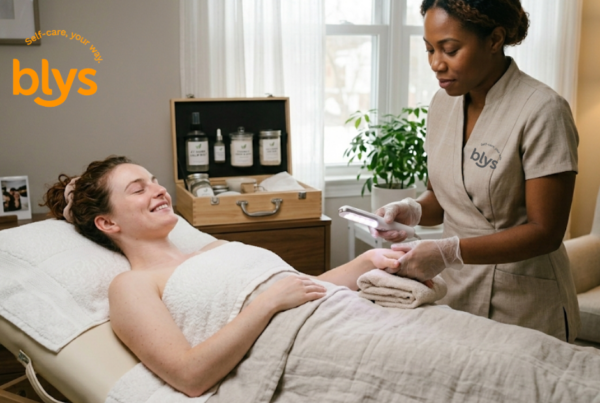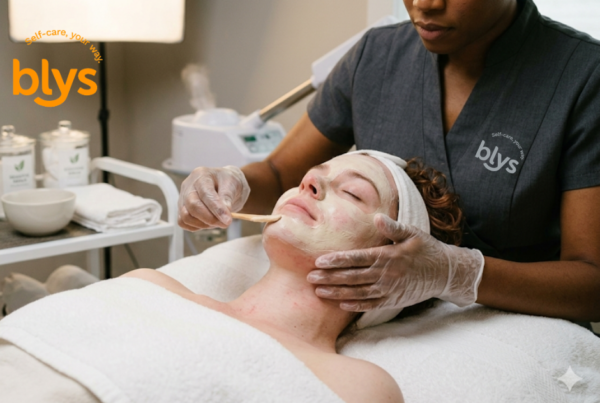
In today’s world, stress often feels like part of the job description. Whether you’re juggling deadlines, caring for family, or spending long hours in front of screens, mental strain builds up quietly. Over time, it can affect not only your thoughts but also how your body feels and functions.
The link between mental fatigue and physical tension is stronger than many realize. Anxiety may tighten your jaw, stress can cause stiff shoulders, and ongoing pressure might leave you feeling constantly drained. These signs can build up, making it harder to sleep, focus, or feel truly at ease.
That’s why supporting your mental well-being means caring for your whole body too. While practices like mindfulness, journaling, and counselling play a key role, physical therapies such as remedial massage are just as important. They work by gently releasing built-up tension in your muscles, helping calm your nervous system and bringing a sense of balance back to both body and mind.
The Science Behind Massage and the Mind
Remedial massage is more than just a way to loosen tight muscles. It also creates measurable changes in the body’s stress response, which is why it’s increasingly being recognized as a supportive therapy for mental health.
When the body is under constant stress, the sympathetic nervous system kicks in. This is the “fight or flight” mode your heart rate rises, your muscles tense up, and cortisol (the stress hormone) increases. Over time, this state can lead to anxiety, fatigue, poor sleep, and even physical pain.
Remedial massage helps the body shift into a more relaxed state by activating the parasympathetic nervous system the “rest and digest” mode. This shift has several science-backed benefits:
- Reduces cortisol levels: A study published in the Journal of Alternative and Complementary Medicine found that massage therapy can reduce cortisol levels by an average of 31% after a single session.
- Increases serotonin and dopamine: These are the body’s natural “feel-good” chemicals. Higher levels are associated with improved mood, better sleep, and reduced anxiety.
- Lowers heart rate and blood pressure: Massage has been shown to improve circulation and reduce physical signs of stress, including elevated pulse and tension in the muscles.
- Supports nervous system regulation: By easing the sympathetic nervous system’s overactivity, massage helps restore balance and makes it easier to cope with daily stressors.
- Improves body awareness: The calming touch of massage can reconnect you with your body, promoting mindfulness and helping you recognize physical signs of stress earlier.
These effects don’t just feel good they contribute to long-term emotional balance and mental clarity. For many people, regular massage becomes a grounding routine that supports everything else they’re doing to stay mentally well.
If you’re dealing with physical stress from workouts or overuse, this article on remedial massage for sports injury recovery explains how massage can speed up healing and reduce muscle strain.
How Remedial Massage Works for Stress Relief
When you’re under constant stress, your body tends to absorb the pressure often in ways you might not even realize. Stiff shoulders, jaw tightness, and recurring headaches can all be signs that tension is building up. Remedial massage helps unwind that tension by focusing on the areas where stress shows up most.
This isn’t just a relaxing experience it’s a purposeful treatment designed to restore balance and ease both physical and emotional strain.
- It’s goal-focused and outcome-driven: Remedial massage targets specific problem areas rather than applying a general full-body approach. Your therapist will tailor the session to ease chronic tightness, stress-related aches, or postural discomfort brought on by long hours sitting or working.
- It targets stress-related physical patterns: Common signs of stress in the body include tight shoulders, tension headaches, jaw clenching, and lower back pain. These areas often become tense when the nervous system is in a constant state of alert.
- It uses clinically informed techniques: Techniques such as deep tissue massage, myofascial release, and trigger point therapy are carefully applied to relieve muscular tension and support nervous system regulation. Your Blys therapist will adjust the pressure to ensure you stay comfortable throughout.
- It’s fully personalized to your stress profile: Every Blys session begins with a short check-in to understand your current stress levels and physical symptoms. This allows your therapist to customize the treatment based on where your body holds tension and what you need to feel more at ease.
Feeling tense or overwhelmed? Book a mobile remedial massage with a trusted Blys therapist and feel the difference in both body and mind without leaving your home.
Real-Life Mental Health Benefits
Stress affects everyone differently, but one thing is consistent: the body and mind are deeply connected. When your muscles are constantly tense or your nervous system stays in overdrive, it’s harder to sleep, focus, or manage emotions. That’s where remedial massage can make a genuine difference. It doesn’t just help your body feel better—it also supports your emotional well-being in meaningful, day-to-day ways.
Here are five ways regular remedial massage can improve your mental health:
1. Improved sleep and better rest cycles
Chronic stress often leads to poor sleep or restless nights. Remedial massage helps quiet the nervous system and release physical tension, making it easier to fall asleep and stay asleep. Clients commonly report deeper rest and fewer nighttime wakeups after their sessions.
2. More stable energy and improved mood
When your muscles relax and circulation improves, your body uses energy more efficiently. This often translates into feeling more refreshed during the day and less emotionally drained. Massage may also stimulate the release of feel-good hormones like serotonin and dopamine, naturally lifting your mood.
3. Reduced anxiety and lower stress levels
Remedial massage is known to reduce cortisol the hormone associated with stress. The calming pressure and focused touch help bring the nervous system out of its fight-or-flight state, making it a supportive therapy for those navigating high-pressure lifestyles, burnout, or generalized anxiety.
Sharper focus and mental clarity
Physical discomfort and emotional stress can cloud your thinking. By easing muscle tightness and improving blood flow, massage can help clear brain fog, support concentration, and make daily tasks feel more manageable.
4. Better emotional regulation and resilience
Over time, consistent massage can help train your body to relax more easily. Many clients find they’re less reactive in stressful situations, more in tune with how they feel, and better able to handle emotional ups and downs with calm and control.
Taking care of your mental health doesn’t always mean adding more to your to-do list. Sometimes, it starts with giving yourself permission to slow down. A personalized remedial massage could be the reset your body and mind have been waiting for.
What to Expect During a Blys Session
If it’s your first time booking a mobile remedial massage, you might be wondering what actually happens once your therapist arrives. The good news is, Blys makes the entire process simple, comfortable, and designed around your needs.
Each session is carefully structured to give you the best results possible without the hassle of driving to a clinic or rushing to fit it into your day. Here’s what you can expect:
| Step | What Happens |
| Therapist Arrival | Your therapist brings everything needed: a professional massage table, clean towels, oils, and any other equipment. All you need is a quiet, private space like your bedroom or living room. |
| Initial Consultation | Before starting, your therapist will ask about your stress levels, areas of discomfort, lifestyle habits, and goals. This quick chat helps shape the treatment to address both physical and emotional tension. |
| Personalised Treatment | The massage is completely tailored. Depending on your symptoms, your therapist may use deep tissue work, myofascial release, trigger point therapy, or other techniques always adjusting pressure to suit your comfort. |
| Post-Session Care | After the session, you’ll receive simple tips to maintain the results. This may include recommended stretches, posture support advice, or reminders to stay hydrated for optimal recovery. |
Each session is a step toward feeling more grounded, relaxed, and in tune with your body. Whether you’re booking for stress relief, recovery, or regular self-care, Blys therapists are there to support your wellness journey right from the comfort of home.
For long-term aches linked to stress or tension, this guide on remedial massage for chronic pain offers helpful insights on how targeted treatment can ease discomfort and support recovery.
When Massage Can Complement Professional Mental Health Care
While remedial massage offers meaningful support for stress and emotional well-being, it’s important to recognize that it’s not a substitute for professional mental health treatment. Instead, it works best when used as part of a broader care plan that includes the right clinical or therapeutic support for your situation.
Remedial massage isn’t about replacing what already works. It’s about adding another layer of care one that speaks to the body, so the mind has more space to heal.
Massage can be especially beneficial when paired with approaches like:
- Counselling or talk therapy: A regular massage session can help ease physical symptoms of stress and create the emotional space needed to process thoughts and feelings in therapy.
- Mindfulness or meditation practices: If you’re working on being more present and in tune with your body, massage enhances this awareness by calming the nervous system and grounding you in the moment.
- Movement-based therapies: For those engaging in yoga, physiotherapy, or gentle exercise as part of their mental health care, massage helps reduce muscle tightness and supports recovery.
If you’re considering massage as a complement to your mental health plan, here are a few simple ways to approach it:
- Mention it during a check-up or therapy session: Let your GP, psychologist, or counsellor know you’re exploring massage as a supportive therapy. They may offer insights on how it fits into your existing routine or treatment goals.
- Track how you feel afterward: Take note of how your sleep, mood, or focus change after your sessions. This feedback can help you and your healthcare team decide how to integrate massage into your self-care toolkit.
- Be open about what works for you: Everyone responds differently. What matters most is finding a balance of tools that help you feel supported physically, mentally, and emotionally.
Whether you’re managing ongoing stress or simply want to feel more at ease in your day-to-day life, massage can be a valuable part of your wellness routine. When combined with guidance from trusted professionals, it becomes even more powerful helping you build a stronger, more resilient foundation for your mental health.
Supportive Lifestyle Tips to Maximise the Benefits
A single massage session can offer immediate relief but building long-term balance requires a few simple habits that support your body between treatments. By combining massage with other healthy practices, you can extend the effects and feel the benefits for longer.
Start by making sure you stay hydrated after your session, as water helps flush out any metabolic waste released during the massage. Getting enough sleep is also essential. Your body does much of its healing and recovery during rest, so a good night’s sleep can boost the overall impact of your treatment. Gentle movement, like walking or stretching, can keep circulation flowing and prevent tension from settling back in.
You might also try simple breathing techniques or journaling after a session. Slow, deep breaths can enhance your relaxation response, while jotting down how you feel physically and emotionally helps you track patterns over time especially if you’re using massage as part of a broader wellness routine.
Most importantly, think of massage as ongoing support, not just something to book when you’re at your limit. Regular sessions can act as a reset, helping you manage stress before it becomes overwhelming. Like exercise, nutrition, or therapy, massage works best when it’s part of a consistent approach to self-care.
Even small changes in your routine can compound into meaningful improvements over time. The key is to listen to your body, notice how it responds, and take proactive steps to stay one step ahead of stress.
Stress isn’t just in your head—it’s in your body too. Reclaim your calm with a relaxing, therapeutic massage from a qualified Blys professional.
A Simple Way to Feel More Like Yourself With Blys
Stress can build up quietly often showing in your body long before your mind catches up. But the good news is, you don’t have to wait until you’re completely burnt out to do something about it. Small, consistent steps make a big difference, and remedial massage is one of the most accessible ways to start feeling better, both physically and emotionally.
It’s a natural, hands-on approach that helps calm the nervous system, ease tension, and support your mental wellbeing in a way that feels safe and grounding. Whether you’re managing ongoing stress, struggling with sleep, or just feeling a little off, massage can be a helpful part of your toolkit.
Your body and mind work together when one is supported, the other benefits too. By taking the time to care for both, you’re not just treating symptoms. You’re giving yourself the chance to reset, recharge, and feel more like yourself again.





